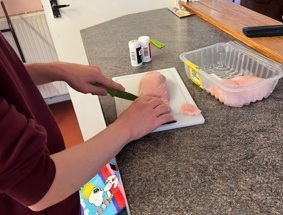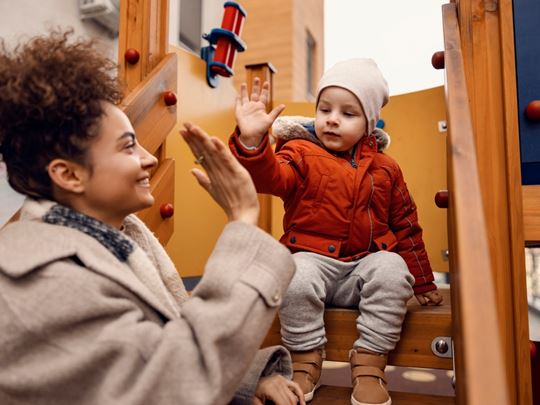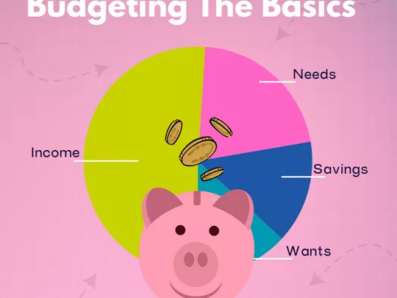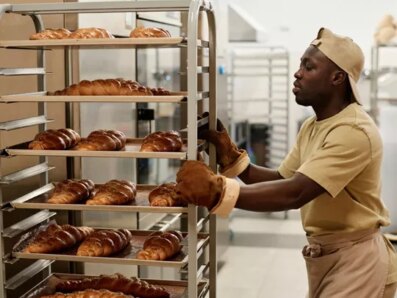Preparing your foster child for secondary school
9 Tips for Guiding Your Foster Child into Secondary School
Navigating feelings around moving schools
It’s normal to feel nervous about moving to a new school. Secondary school comes with lots of changes and unfamiliar situations as your young person navigates making new friends, exploring their independence and achieving in class.
For looked after children, this transition can be an even bigger source of worry; the young person in your care has likely already experienced a great deal of change in their young lives, moving between homes or perhaps even schools, and may have a fear of change. Check out our tips below on how to help your young person to navigate this big transition and thrive at their new school.

Talk about their new school
The most effective way of easing your young person’s nerves around changing schools is perhaps the most simple. Young people may be feeling a range of emotions, including anxious, worried, or excited.
Talk with them about how they’re feeling and reassure them that it’s perfectly normal. Reassure them that everyone their age making the change from year 6 to year 7 will likely be feeling a similar way. It can be a great idea to encourage them to talk about how they’re feeling with their peers, or with a child in your circle who has recently made the same transition from primary to secondary school. Talking about how we’re feeling can often go a long way towards helping us feel better.
FCA’s guide to preparing for secondary school is a great resource for kids who are preparing to make this big transition. Why not share our workbook with them and use it as a jumping off point for a discussion?
Practice their new routine
Your young person may be nervous if they will be travelling to and from school alone for the first time. You can help them to feel more confident by practicing the school route with them so that they know where they have to be and when. Ensure that they have a copy of their bus timetable or a map of their route, either on their phone or on paper.
You can help them to be prepared for their new routine by helping them to decide things in advance, such as what time they’ll need to wake up by and whether they’ll take a packed lunch or get food from the school cafeteria. Make sure that they have all of the essentials well in advance, such as a uniform, stationary set and bags for carrying their daily essentials and PE kit. Trying on their full uniform and breaking in new shoes before the big day can help to ensure that they’re comfortable.
Check out FCA’s guide to establishing a new school routine with your young person.
Get to know their teachers
It’s important to get to know the team who’ll be involved in supporting your young person and learn what support the school has put in place for care experienced children. This could include meeting their form teacher, their head of year, and the school’s counsellor or SENCO (Special Educational Needs Coordinator).
Your young person’s social worker will arrange a personal education plan (PEP) meeting with the school to make arrangements to support your young person’s education and wellbeing. Generally, PEP meetings are reviewed twice a year to ensure your young person is getting the right support for them.

Support their independence
The change from primary to secondary school gives children a fantastic opportunity to make new friends and begin exploring their independence. As well as potentially travelling to school by themselves, they will be expected to become more proactive in the classroom through independent learning activities, revision and managing their homework.
You can support them to do this by ensuring that they have a calm and dedicated space in their room to study and by helping them out with their work when they need extra help. You could also encourage them to sign themselves up for extracurricular activities during lunch or after class— a great way of discovering something new about themselves and making friends!
Making friends
Making new friends is often the most nerve-racking parts of starting at a new school, particularly for children who are shy or who may be attending a different school from their usual circle of friends. Reassure your young person that the best thing they can be is themselves. By trying their best to be open, approachable and brave enough to start a conversation, they’re sure to meet people who would love to call them a friend. Check out FCA’s practical tips on how to make new friends at a new school.
Be ready to listen
It’s important to pay extra care and attention to how your child is feeling in the run up to moving to their new school and in those first few weeks once they’ve transitioned. Find opportunities to chat, engage in active listening and take their concerns seriously. Things which may seem trivial as an adult, such as a falling out between classmates or a lesson which they really dislike, may be causing them a lot of distress.
While it’s normal to see some behaviour changes as your young person adjusts to their new school and find their place among their peers, be alert to long lasting or significant changes. Even if they assure you that everything is going great at their new school, their body language or changes in their mood and behaviour may say otherwise. Talk to your child, their social worker, their teachers or their GP if you have any concerns about their mental wellbeing.
Achieving together
Remember that with FCA, there’s always someone on hand to support you and the children in your care. We offer plenty of support tailored to looked after young people, and we work in collaboration with AQA’s Unit Award Scheme and the Duke of Edinburgh Award to support children in their education.
By working collaboratively with the best interests of children always at the forefront, we can help the child in your care to succeed at their new school and go on to achieve great things.
Interested in learning more about fostering? Enquire with us today or learn more about the great range of educational support which we offer to young people.















